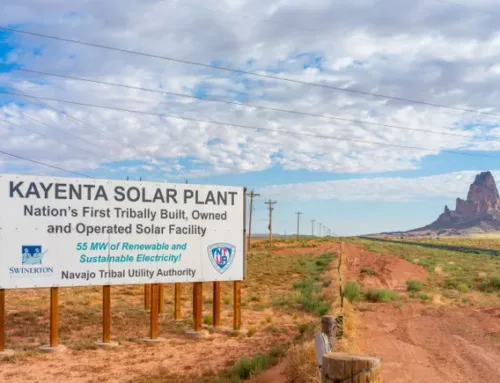Paris without Trump: A win for the planet?
March 28, 2025
It is astounding what Donald Trump gets away with by using a ball pen and some ink. But it came as no surprise that immediately on returning to office Trump signed an executive order and withdrew his country, once more, from the Paris climate change agreement.
Many feared it would create an avalanche of countries following suit and maybe that is what the US president hoped for. If so, it doesn’t seem to have gone his way.
In fact, the US withdrawal might be the best thing that could happen for the annual climate change negotiations. It officially removes from the talks a party that has been actively preventing progress on a pathway out of fossil fuel use and which has deployed delaying tactics, hindering the achievement of crucial milestones. The United States has always been influential, but not the most reliable or ambitious actor when it comes to fulfilling its climate finance promises or committing to the reduction of greenhouse gas emissions.
Reactions to Trump’s withdrawal from the Paris Agreement have been mixed.
Developing countries enjoy multiple benefits from being signatories to the Paris Agreement.
Indonesia’s special envoy for climate change and energy, Hashim Djojohadikusumo, made probably the strongest remarks, saying the agreement might no longer be “relevant” to his country on the grounds of justice and a fair share of greenhouse gas emission reductions. This statement was later superseded, with his own ministry backing the climate deal.
Argentina’s President, Javier Milei, has been toying with the idea of leaving the Paris Agreement as well, however this was not sparked by Trump’s decision but had already been discussed by Milei’s administration last year. Experts say he would face significant congressional hurdles and potentially breach a major trade deal that Argentina entered with the European Union, in which the Paris Agreement and other commitments to climate change and environmental protection are essential elements.
It should be stressed that developing countries enjoy multiple benefits from being signatories to the Paris Agreement. Climate change projects tackling water security, sanitation, and economic growth also contribute to development objectives. This may curtail the risk of developing countries walking away from the agreement, particularly considering that the United States has withdrawn billions from (previously promised) development aid.
So what about other countries abandoning Paris?
Europe is standing strong. The European Commission’s director general for climate action, Kurt Vandenberghe, said the world needs to stay “steady” on the course to decarbonisation, and the United Kingdom has come forward with an impressive updated climate pledge. Germany’s new Chancellor, Friedrich Merz, is likely to seek to maintain a united European position due to the war in Ukraine and the crumbling transatlantic partnership with the United States, with his country remaining a reliable actor in the climate change space.
Australia, despite a history of lacklustre commitments, is engaged, with both the Albanese government and the opposition under Peter Dutton confirming they will not pull out. New Zealand’s Prime Minister Christopher Luxon affirmed the country’s reduction targets and commitment to Paris are not up for debate, and that Trump’s withdrawal has not changed that. Japan has increased its greenhouse gas emission reduction target from 43 per cent to 60 per cent, while Canada’s then environment minister described the Trump decision as “deplorable”.
The developed world is standing firm. It understands what is at stake.
A major risk is to the available quantum of climate finance, much of which is linked to goals in the Paris Agreement. The Trump administration made shocking cuts and freezes to the US foreign aid sector, slashing vital assistance to communities living in poverty or with poor access to health care and education. While there might be a glimmer of hope that not all foreign aid will be withdrawn, the US president has made sure to financially demolish any projects that combat climate change or support communities suffering the consequences. This includes, for example, funding for the UN climate change body (UNFCCC) as well as $4 billion in pledges to the Green Climate Fund, set up in response to the Paris accords. The US will also pull any financial support for the recently created “fund for responding to loss and damage”. These are among a long list that even extends to projects already approved, agreed to, and underway.
While there are signs that Europe, together with the United Kingdom, is willing to play a leadership role in the ongoing climate talks, the finance crater will be hard, if not impossible, to fill.
As with all things Trump, the odds are hard to predict, but while he might be able to dismantle his own climate policies, cohesion among other powerful (and offended) countries might make a negotiating table without the United States a blessing in disguise.
Search
RECENT PRESS RELEASES
Related Post



